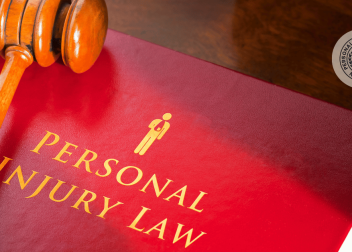Becoming a personal injury lawyer could be your calling if you’re passionate about justice and want to help people recover from life-altering accidents. This field allows you to advocate for victims, hold negligent parties accountable, and secure fair compensation for medical bills, lost wages, and pain and suffering.
But how do you break into this competitive legal niche? This guide walks you through the essential steps—from education to licensure—and shares insider tips to build a thriving practice.
What Does a Personal Injury Lawyer Do?
Personal injury attorneys specialize in tort law, representing clients harmed due to someone else’s negligence or intentional actions. Common cases include:
- Car accidents
- Slip-and-fall incidents
- Medical malpractice
- Workplace injuries
- Defective product claims
These lawyers negotiate settlements, file lawsuits, gather evidence, and work with medical experts to build strong cases. The best ones combine sharp legal skills with deep empathy, understanding that a person in distress is behind every claim.
Step 1: Earn a Bachelor’s Degree
Before law school, you’ll need an undergraduate degree. While no specific major is required, political science, pre-law, or criminal justice courses can provide a solid foundation. Focus on developing:
- Critical thinking – Analyzing complex cases requires logical reasoning.
- Writing skills – Legal briefs and motions demand clarity and precision.
- Public speaking – Persuasive communication is key in courtrooms and negotiations.
Pro Tip: Intern at a law firm or shadow a personal injury attorney to gain real-world exposure.
Step 2: Take the LSAT and Apply to Law School
The Law School Admission Test (LSAT) is a standardized exam that assesses reading comprehension, analytical reasoning, and logical thinking. A high score boosts your chances of admission into a top-tier law school.
Once accepted, you’ll spend three years earning your Juris Doctor (J.D.). Key courses to focus on include:
- Torts (the foundation of personal injury law)
- Civil Procedure (understanding court processes)
- Evidence (how to build a compelling case)
- Negotiation & Trial Advocacy (essential for settlements and litigation)
Step 3: Pass the Bar Exam
After graduating, you must pass your state’s bar exam to practice law. This rigorous test covers:
- Multistate Bar Examination (MBE) – Multiple-choice questions on core legal principles.
- State-specific section – Laws and procedures unique to your jurisdiction.
- Ethics exam (MPRE) – Ensures you understand professional conduct rules.
Each state has different passing scores—check your local state bar association for details.
Step 4: Gain Experience in Personal Injury Law
Freshly minted lawyers often start as associates at established firms. Look for firms specializing in:
- Plaintiff-side personal injury (representing injured individuals)
- Insurance defense (working for insurance companies—helpful in understanding the opposition)
Hands-on experience helps you master:
- Case evaluation – Determining if a claim has merit.
- Client interviews – Extracting crucial details from victims.
- Settlement negotiations – Maximizing compensation without trial.
Pro Tip: Consider becoming a law clerk or paralegal in a personal injury firm while in law school.
Step 5: Build Your Reputation and Clientele
Once licensed, you can work at a firm or start your practice. To attract clients:
- Network with doctors and physical therapists – They often refer patients needing legal help.
- Leverage online marketing – A strong SEO-optimized website and Google Ads can drive leads.
- Get client reviews – Positive testimonials build trust.
- Join legal associations – Organizations like the American Association for Justice (AAJ) offer resources and referrals.
Essential Skills for Success
| Skill | Why It Matters |
|---|---|
| Negotiation | Most cases settle out of court—being persuasive pays off. |
| Empathy | Clients are often traumatized; compassion builds trust. |
| Attention to Detail | Missing a deadline or piece of evidence can sink a case. |
| Courtroom Presence | If a case goes to trial, confidence wins over juries. |
Frequently Asked Questions
How Long Does It Take to Become a Personal Injury Lawyer?
- 4 years (undergrad) + 3 years (law school) + bar exam prep = 7-8 years total.
Do Personal Injury Lawyers Make Good Money?
Yes. According to the U.S. Bureau of Labor Statistics, the median salary for lawyers is $135,740, with top earners in personal injury making $200,000+ through contingency fees (a percentage of the settlement).
Is Personal Injury Law Stressful?
It can be that dealing with injured clients and aggressive insurers isn’t easy. But helping someone rebuild their life after an accident is incredibly rewarding.
Final Thoughts
Becoming a personal injury lawyer takes dedication, but it’s a career where you can make a real difference. If you’re ready to fight for justice, start by excelling in law school, passing the bar, and gaining hands-on experience.
Next Steps:
- Research top law schools with strong tort law programs.
- Connect with local personal injury attorneys for mentorship.
- Stay updated on legal trends through resources like the American Bar Association.
The road is challenging, but it’s worth every step for those with grit and passion.



